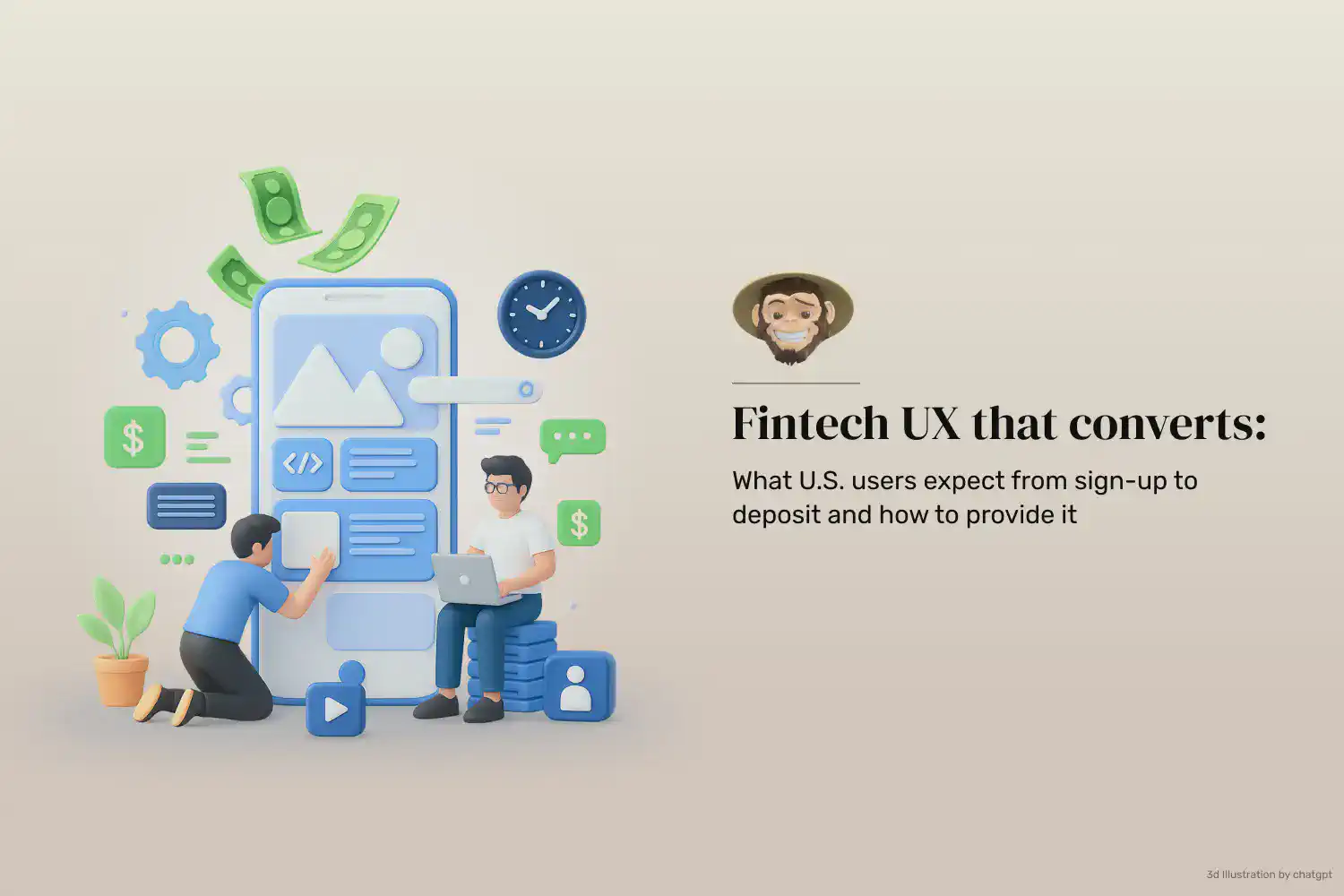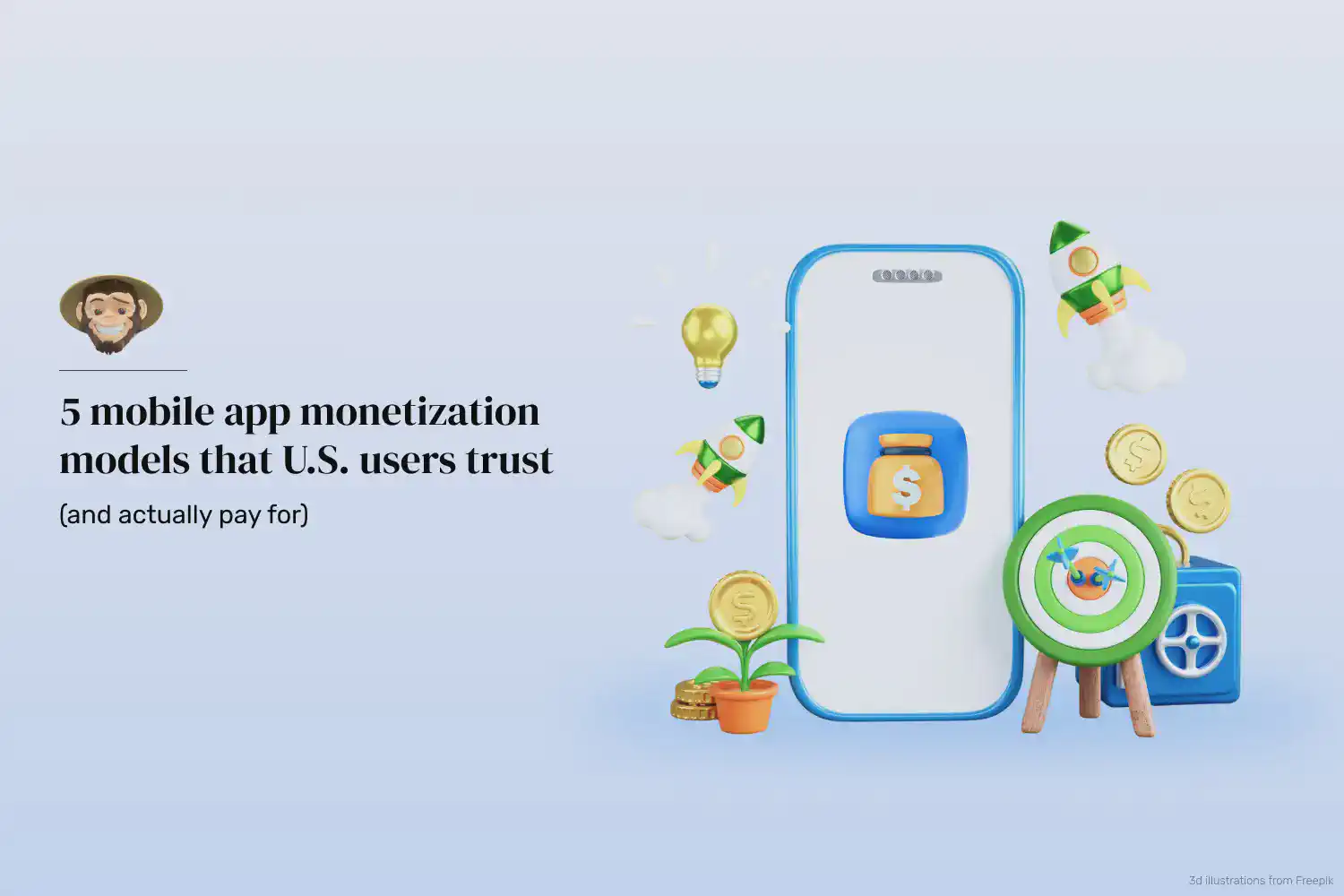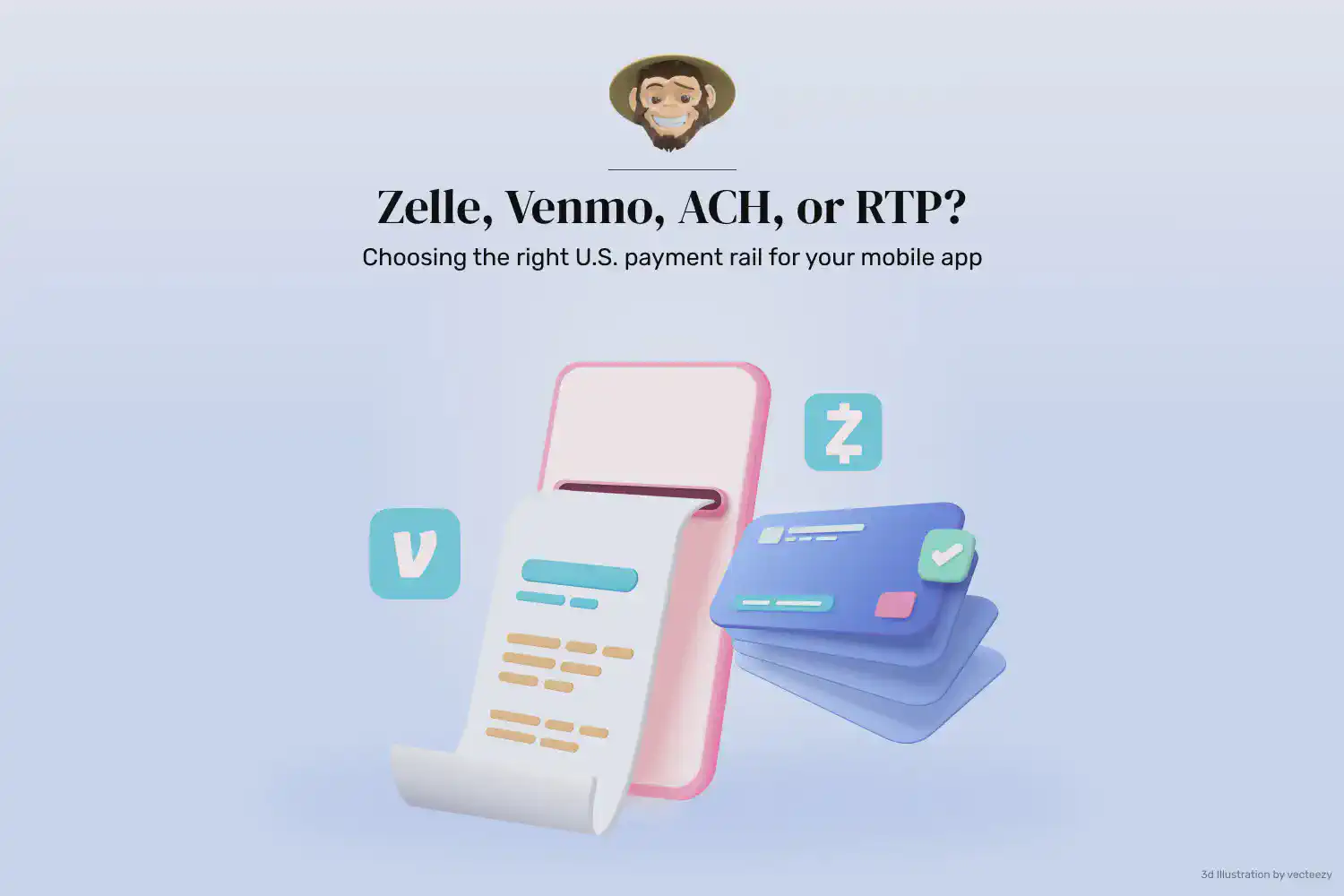Today, the NIST has become the de facto standard for cybersecurity across the private sector, particularly in compliance-intensive domains such as mobile banking and digital healthcare solutions.
The modern digital ecosystem has undeniably become a hotbed for innovation, progress, efficiency, and societal advancement. However, despite these game-changing benefits that technology has brought us, the digital world has also become a breeding ground for criminals to thrive. Cyber threats are now more sophisticated than ever, and we are facing substantial security risks, making cybersecurity more than a feature; it is now a foundational requirement. This statement is especially critical in highly regulated industries, such as FinTech and healthcare, where mobile and software applications handle highly sensitive financial and medical data that app developers must protect at all costs. Moreover, for startups and companies operating in the United States, failure to implement strong security measures can also result in significant regulatory penalties and loss of user trust.
That’s why, at Foonkie Monkey, we deemed it critical to explain the importance of the NIST for FinTech and healthcare app development in the US. We have created a guide to explain what the NIST is, its relevance, and how we implement the NIST Cybersecurity Framework in our app development processes. This structured, scalable, and industry-vetted approach ensures that all our digital products are not only robust but also resilient, compliant, and future-proof. By following the NIST CSF, we can confidently say that our clients’ digital assets are in safe hands.
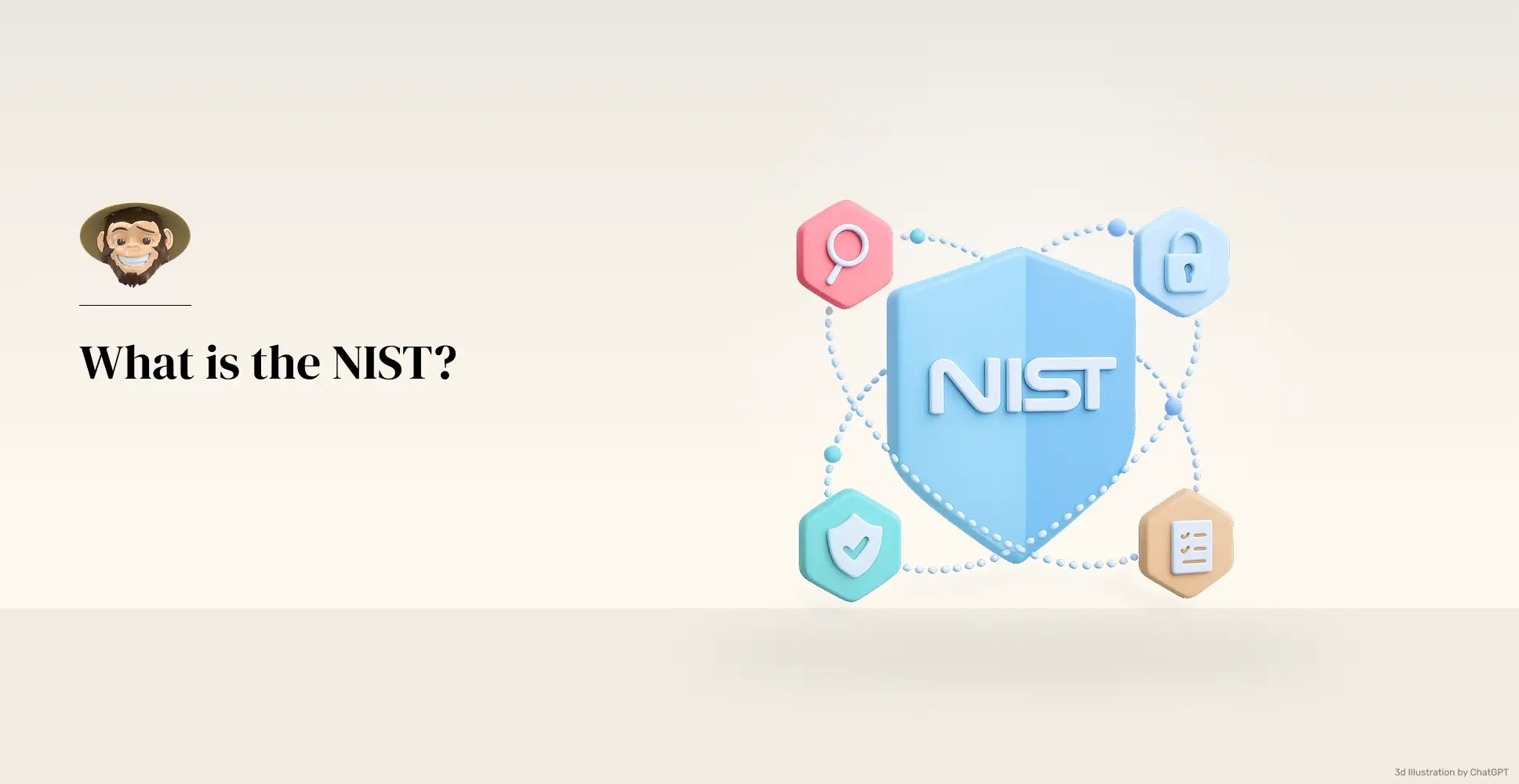
What is the NIST?
The NIST, a cornerstone in the US, has been instrumental in creating cybersecurity frameworks that help app developers, companies, and startups keep their digital systems safe and secure, protect sensitive data, and comply with US regulatory requirements. As the National Institute of Standards and Technology, it operates under the Department of Commerce, promoting standards, technology, and best practices across various industries. The NIST Cybersecurity Framework (CSF) plays a pivotal role in identifying, protecting, detecting, responding to, and recovering from cyber threats. Its widespread adoption by companies in the USA, spanning finance, healthcare, and SaaS, is a testament to its effectiveness in managing cyber risks.
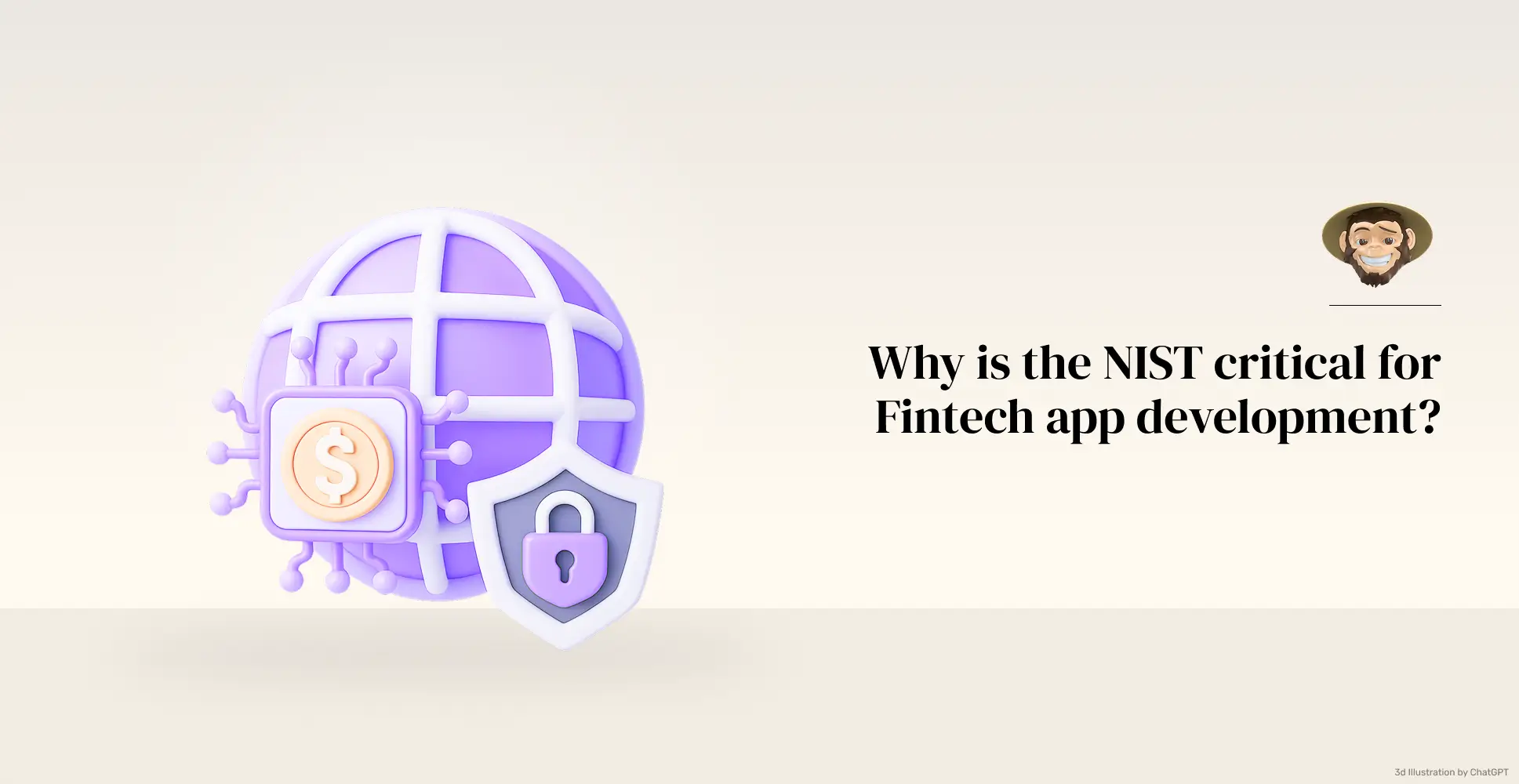
Why is the NIST critical for Fintech app development?
As we already know, data security and protection in the FinTech sector is a legal and operational necessity because of all the high-value assets that can easily become targets for cybercriminals. For U.S.A.-based FinTech companies and startups, compliance with strict regulatory mandates is a non-negotiable requirement to ensure the protection of these assets and sensitive data. The NIST CSF offers a risk-based, straightforward, adaptable roadmap for implementing security practices that align with regulatory requirements. Its simplicity and ease of implementation should give you confidence in its critical role for FinTech app development. Here’s why it’s so vital:
- Built-in risk management: The NIST CSF empowers app developers with a proactive approach to identify, assess, and manage all cybersecurity risks, enabling them to easily identify, protect, detect, respond to, and recover from threats.
- Peace of mind with regulatory compliance: The NIST CSF aligns seamlessly with U.S. regulatory frameworks, such as KYC/AML, SOC 2, and PCI DSS, ensuring your FinTech mobile app is legally sound from the outset. This compliance brings a sense of reassurance and security, allowing you to focus on your app’s development without worrying about legal issues. By adhering to NIST standards, you can be confident that your app is compliant and secure, giving you the peace of mind to focus on what you do best-innovating and growing your business.
- Foundational for secure app architecture: The NIST CSF helps app developers implement security by design, from login flows and transaction validation to backend APIs and data storage.
- Modular, flexible, and scalable: The NIST CSF is not only adaptable but also designed to cater to a wide range of users, from startups to experienced app developers, enabling them to achieve successful results, strengthen their defenses, and scale easily, regardless of their technical background or knowledge level.
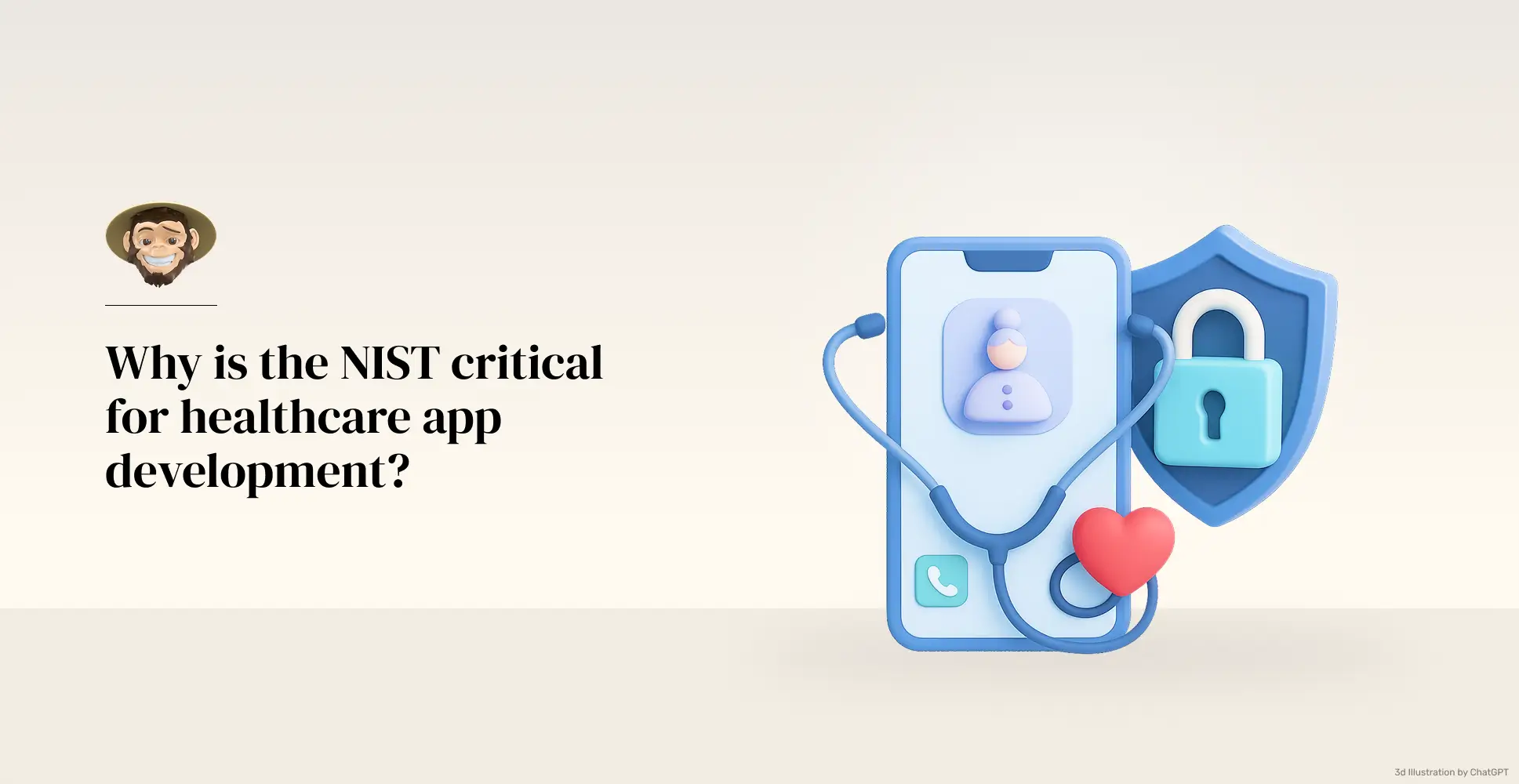
Why is the NIST critical for healthcare app development?
In the U.S. healthcare industry, healthcare mobile apps and software that store, process, or transmit Electronic Health Records (EHRs) or Protected Health Information (PHI) must adhere to stringent privacy and security requirements specified in HIPAA regulations. The NIST CSF provides app developers and startups with very clear guidelines for building secure, HIPAA-compliant mobile and web healthcare applications. Here are the main reasons why the NIST is pivotal to keep healthcare mobile apps secure.
- It aligns with HIPAA safeguards: The NIST CSF guidelines are directly aligned with the HIPAA Security Rule’s three safeguard categories (Administrative, Physical, and Technical), as well as encryption, access controls, authentication, and activity logging.
- Supports encryption for secure patient data sharing: The NIST CSF has a set of approved cryptographic standards, which includes AES-256 and TLS 1.3. These protocols enable secure exchange of medical data across systems, cloud environments, APIs, and other networks, all while maintaining compliance with U.S. healthcare data laws.
- Enables Role-Based Access: Healthcare mobile apps often serve multiple user types, including patients, doctors, pharmaceutical representatives, nurses, and administrative staff members. As a result, app developers must differentiate between which users can access which data. The NIST outlines straightforward identity and access management (IAM) protocols to ensure that each user accesses only data relevant to their role, thereby reducing the risk of data breaches and fulfilling HIPAA standards.
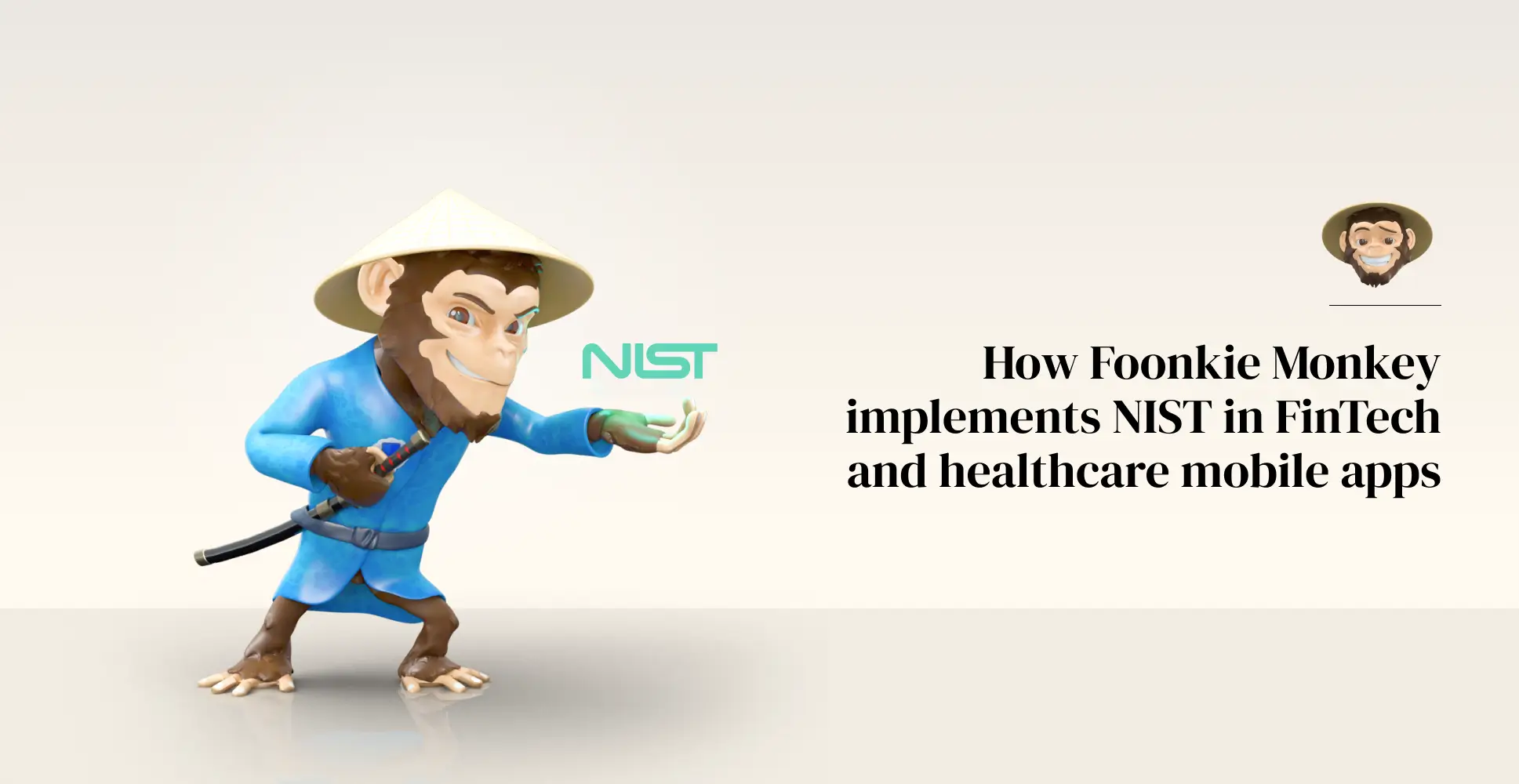
How Foonkie Monkey implements NIST in FinTech and healthcare mobile apps?
At Foonkie Monkey, we treat security and data protection as the foundation for every FinTech and healthcare product we build. NIST guidelines help us ensure we have a robust and comprehensive strategy for mobile app security, providing a blueprint for building compliant and trusted digital products for our clients in the United States. Whether we’re launching a FinTech or a healthcare mobile app, using NIST standards helps us ensure both security and credibility. Here’s how we implement them.
- Thorough risk assessment: Before a single line of code is written, we conduct a meticulous risk assessment. This process identifies the user data we’ll collect, our mobile app’s compliance requirements (including KYC, HIPAA, and AML), and potential threats, ensuring a secure and compliant product.
- Proactive security protocols: At Foonkie Monkey, we embed security directly into the architecture of our FinTech and healthcare mobile apps. We utilize NIST-recommended encryption methods, including AES-256, MFA, RBAC, and biometrics, for access control. We also follow NIST best practices for secure API development and compliance alignment, ensuring a proactive approach to security.
- Monitor threats in real time: As experienced FinTech and healthcare mobile app developers, we are capable of detecting suspicious behavior before any damage is done. We use automated monitoring tools to track unusual behavior and store audit logs with tamper-proof mechanisms and regular reviews.
- Have a response plan: In the face of a potential security threat, we are always prepared. We have response plans and playbooks for specific event types (data breach, account takeover, etc.), ensuring a swift and effective response.
- Have a recovery plan in place: In the event of a breach or system failure, we must be able to recover quickly and efficiently. For this, we utilize the NIST playbook to consistently establish secure backups for databases, configurations, and cloud infrastructure. We also practice recovery drills and communicate transparently with all affected users and stakeholders.

Conclusion
At Foonkie Monkey, we believe that security must be a part of the core infrastructure of any mobile or software application. For this reason, we believe that building with NIST-aligned app architecture from day one is key to long-term success because it helps us reduce exposure to cyber threats, comply with U.S.A regulations like HIPAA, SOC 2, and PCI DSS, and scale securely in highly regulated markets like healthcare and digital financial services. Moreover, by aligning our development practices with the NIST guidelines, we also help our US-based clients streamline audits and build trust with their users, partners, investors, and regulators.
If you’re building a FinTech or healthcare mobile app for the U.S.A market, and security and compliance are critical to your roadmap, Foonkie Monkey is your strategic development partner. Together, we’ll turn NIST principles into a competitive advantage. All you have to do is get in touch!


